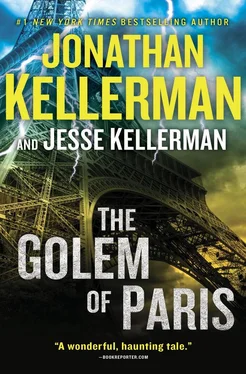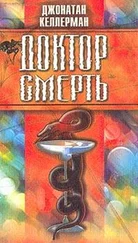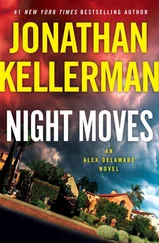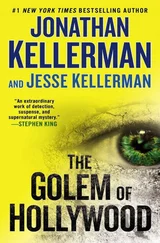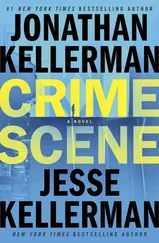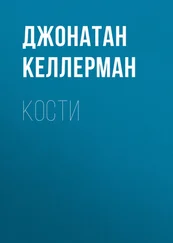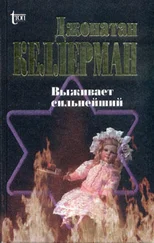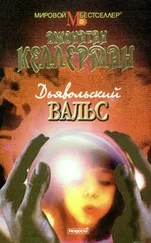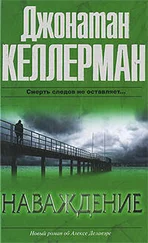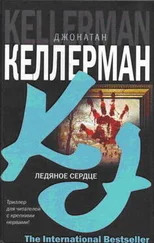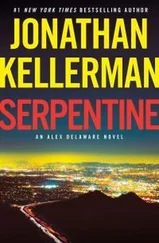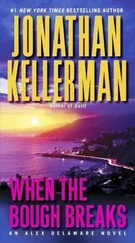More to the point, she didn’t know where to begin looking. The alley was not the scene of the crime. The same problem applied to the search for witnesses.
How many gunshots went off on a given Sunday night in the greater L.A. area?
How many of those went unreported?
If the murders had taken place even a few blocks west, any caller reporting shots would’ve gotten routed to the sheriffs. LAPD might never have heard about it. Either way, the tapes would be long erased.
Time for some human intelligence.
“Excuse me, please,” the counterwoman said.
Thickset, lantern-jawed, she frowned ostentatiously at the ceiling and drummed the softened marble countertop.
He realized he had the file open to a photo of Thomas White’s brutalized face.
“I have customers,” she said.
Strictly speaking, it wasn’t true: they were the only people in there, unless you counted the infant girl pictured on the box of chocolate bars beside the register.
The counterwoman cleared her throat. “Mister.”
Jacob took his lunch to go.
Dan Ballard’s obituary stated that he was survived by his mother, Livia. Back at his apartment, Jacob searched for her on his home computer and got another obituary.
A lifelong bachelor? Or estranged from his ex, his kids?
Jacob felt an unwelcome sense of kinship.
He phoned Theresa Krikorian’s widower, a retired firefighter out in Simi Valley, and introduced himself.
“The file’s pretty thin,” he said. “I figured maybe she mentioned it to you.”
“Huh,” the husband said. His name was Ray, and he sounded like every firefighter Jacob had met: gregarious and mellow and sheltering, a cop without the jaded edge. “I’d love to help you out, but I really don’t remember much. Mind if I ask what made you guys decide to reopen it?”
“It was never officially closed.”
“Honestly, it’s kinda hard to talk about those days. It happened right around the time she got sick.”
“I’m sorry,” Jacob said.
“It is what it is.” Ray paused. “I always thought that was a dumb thing to say. You know? Anyhow... Terri always did have trouble leaving her work at work, and that case really got to her. From what I recall, it was pretty heinous.”
“It was.”
“We have a daughter about the same age.”
Today she’d be fourteen or fifteen. Crushes, first kiss, crystallizing sense of self.
Stages Thomas White Jr. would never attain.
Ray had fallen silent again. To draw him out, Jacob asked about his daughter.
“Phoebe? She’s terrific. Sharp, like her mom.”
“Any other kids?”
“A boy, Will. Twelve.” Ray laughed. “He’ll be happy driving a shiny red truck.”
“Who wouldn’t?”
“Yeah, well. He talks about the Marines, too. I told him to save his back. That’s what finished me off. Disc degeneration.”
“You served.”
“Desert Storm.” A beat. “I will tell you that when Terri caught the case, it was a big step up for her. Till then, she’d done auto theft and burglary. She was psyched to work her first homicide. I don’t know why they thought it was smart to give her this one in particular. I mean, Christ, they knew she had young kids at home. Maybe they thought they were doing her a favor, tossing her into the deep end.”
“Sure,” Jacob said, although he considered it more likely that the mechanism behind Terri Krikorian’s case assignment was like everyone else’s: indifferent.
“It changed her,” Ray said. “Before that, she was never the overprotective type. The opposite, actually, easygoing. She and I were both busting our butts, trying to get ahead, working these crazy hours. We used to leave our kids with the neighbor. But once Terri started working the mother-son thing, her attitude did a total one-eighty, it was, ‘No, it’s not safe, one of us needs to be home.’ Have you ever been out to Simi Valley?”
“Once or twice.”
“Then you know, it’s not the mean streets. You got kids running around in their front yards, playing together. The biggest danger is peanut allergies. Terri, she starts asking me to cut back on my shifts so I can do day care. We fought about it a lot. I was like, ‘Why should I be the one to adjust? It’s your job, yadda yadda.’ Looking back, I can’t believe what a big deal I made about it.”
The remorse in his voice pinched Jacob’s heart.
“You get stuck believing certain things are so important, and they’re vanity and bullshit. Tell me she’ll be gone three years later, you think I’m standing my ground?”
“You didn’t know,” Jacob said.
“Yeah.” Ray laughed sadly. “Whoever said what you don’t know can’t hurt you was the biggest idiot that ever lived. What you don’t know is exactly what beats the shit out of you.”
Around dinnertime, Jacob phoned Pacific Continuing Care to ask about his mother. The nurse who picked up sounded casual. Appetite normal, vitals normal, not a peep in the last twenty-four hours.
He’d never expected to feel relieved to hear that Bina was nonresponsive.
“Can you please tell her I’ll swing by tomorrow?”
“Sure.”
“And if she does anything unusual, you’ll let me know?”
“Unusual like what?”
He hesitated. “I’ll be by tomorrow.”
For form’s sake, he checked the fridge. One-third of a six-pack. He pretended to feel disappointed in himself, then set out for his daily dose of nitrates.
The guy working the 7-Eleven register was the owner’s son, a tubby Asian-American named Henry who greeted Jacob, as always, with a listless fist-bump.
“What’s the good word?” Jacob asked.
“Not much,” Henry said. He seemed distracted.
Jacob let him be. He knew about tough days; he was having one.
He got his hot dogs, piled on toppings, couple bottles of Beam to wash it down.
Usually Henry cracked wise about Jacob’s drinking, knowing it wouldn’t make a difference: an addict is an addict. Tonight he rang up the bourbon without comment.
“D’you see that car?” he asked.
“Which one?”
“Green Nissan. There.”
A patchy sedan, black in shadow, sat parked along Airdrome on the far side of Robertson.
“It’s been there for two hours,” Henry said.
“Maybe he’s picking up someone at the rec center.”
“It was here yesterday, too.”
“Sitting there, doing nothing?”
Henry nodded.
Jacob squinted, unable to make out the driver. “Did you call the cops?”
“They said no law against parking.”
Jacob used his cell to zoom in and snap a picture of the license plate. It came out too blurry to read, the driver’s face obscured.
He left Henry his card. “Anything more, call me right away. Don’t be shy.”
The clerk nodded skeptically. “Thanks.”
Jacob took his dinner and his clanking plastic bag of booze and exited the convenience store. Crossing Robertson, he saw that the car was indeed dark green, a Mazda rather than a Nissan. The driver hunched behind tinted windows and a hoodie.
Jacob strolled by, eating a dog, noting the shape of a second person in the backseat. He memorized the tag number, jotting it down once he’d rounded onto Wooster.
Henry was right. A parked car, no matter how sketchy, would elicit no serious response. Even in this relatively quiet stretch of West L.A., the cops had more pressing matters to deal with. All the same, Jacob felt on edge as he walked home.
His tension ratcheted up fast at a hulking, dark shape lurking on the landing outside his apartment door.
He set his bags down in the driveway, gripping a bottle of Beam by its stubby neck and quietly mounting the steps.
The bulb on the landing had been dead since April. Again and again Jacob had mentioned it to his landlord and gotten the same response: right away . He could’ve dealt with it himself, but the issue had hardened to a matter of principle.
Читать дальше
